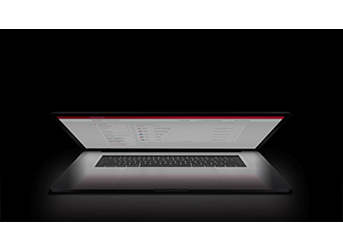Making sense of currency markets
What you need to know right now

By Mar Bonnin-Palmer
If you’re thinking about buying a property in France - or planning any big transfer of money overseas - you’ve probably had that moment of hesitation: Should I send now, or wait? What if the rate changes tomorrow? You’re not alone.
Over the past 20 years, I’ve spoken to hundreds (possibly thousands!) of France Media Group readers who’ve asked the very same thing. And with today’s economic and political uncertainty - from UK elections to global conflicts to what’s happening in the US - it’s no wonder currency exchange feels like a moving target.
That’s exactly why we recently hosted a webinar with our longtime partners at France Media Group to talk through what’s happening in the foreign exchange market, what it all means for you, and what you can actually do about it.
I was joined by two of our in-house experts:
- Lauren Buckner, who heads up our Private Client Dealing Desk and works closely with individuals managing large transfers.
- Joe Calnan, one of our Senior Dealers who’s brilliant at connecting the dots between global events and currency movements.
Here’s a quick recap of what we discussed - and a few practical takeaways you can use if you’re planning to send money abroad this year.
What’s going on with the pound and euro?
We started by looking at the GBP/EUR exchange rate—probably the one most relevant for those buying or selling property in France.
As Lauren explained, we’re not seeing the wild swings we saw during COVID (thankfully), but rates are still moving. The pound hit a high of 1.212 in February, then dropped to around 1.16 in April. That may not sound like a lot but if you’re transferring, say, £100,000, that six-cent swing could cost or save you €6,000.
So yes, it absolutely makes a difference when and how you move your money.
The recent changes have mostly been down to UK inflation data, political uncertainty, and interest rate expectations. And while the EU economy has been relatively stable, it’s not immune either - especially when external events like US policy or global conflicts come into play.
Navigating 2025 volatility
Watch the webinar in full: Join Mar, Lauren and Joe as they discuss how to navigate the fast changing world of currency in 2025.

Why does the US dollar matter (even if you’re not using it)?
Joe broke down something a lot of people find surprising: even if you’re only dealing in pounds and euros, the US dollar still matters. In fact, about 88% of all currency trades worldwide involve the dollar.
So, when the dollar strengthens or weakens, whether it’s because of interest rate changes or political announcements, it can ripple out and affect GBP/EUR. Case in point: recent comments from President Donald Trump about replacing the US Federal Reserve Chair led to a weakening dollar, which in turn impacted other currency pairs.
It’s a reminder that exchange rates aren’t just about the UK or EU—they’re part of a much bigger picture.
The good news? You don’t have to guess
Now for the part that matters most - what you can do to manage your own risk.
The reality is, no one can predict where the market is going. Even top banks can’t agree: some forecast GBP/EUR rising to 1.25, others think it could drop to 1.09. That’s a huge spread.
But the good news? You don’t need a crystal ball to make smart decisions. As Lauren explained, there are tools designed specifically to help you manage uncertainty, such as:
- Forward contracts* – You can lock in a rate now for a future transfer (up to 2 years ahead). These can be particularly useful if you’ve just agreed on a property price, or paid the deposit and waiting for completion, and want to avoid any nasty surprises later.
- Market orders – Set a target rate you’re happy with, we’ll monitor the market for you and if it reaches that rate, your exchange will take place automatically.
- Limit orders – The flip slide of market orders. You can set a lower limit where your purchase would become unaffordable and set up your transfer to execute automatically if the market moves against you.
You don’t have to figure this out on your own. That’s exactly what we’re here for.
A few final thoughts
Something I always tell clients: the FX market moves before events happen - not after. By the time you hear about an interest rate change or election result, the market’s usually already priced it in. That’s why having a plan in place before you need to make a transfer can be a real advantage.
Whether you’re in the early stages of buying a French home, wrapping up an inheritance, or just planning ahead, we’re here to guide you through the options and help you make confident, informed decisions.
If you couldn’t make the webinar, France Media Group is sharing the recording with everyone who registered. And of course, if you have questions, I’d love to hear from you.
We’ve helped thousands of clients like you move money abroad smoothly and with confidence - and my team and I would be happy to help you do the same.
Mar Bonnin-Palmer is Head of Partnerships at Moneycorp. She works closely with individuals and partners to help make international money transfers less stressful - and more strategic. To speak to the team or learn more, email partners@moneycorp.com.
Views expressed in this commentary are those of the author, and may differ from your appointed Moneycorp representative. This commentary does not constitute financial advice. All rates are sourced from Bloomberg and forecasts are taken from Forex Factory.



